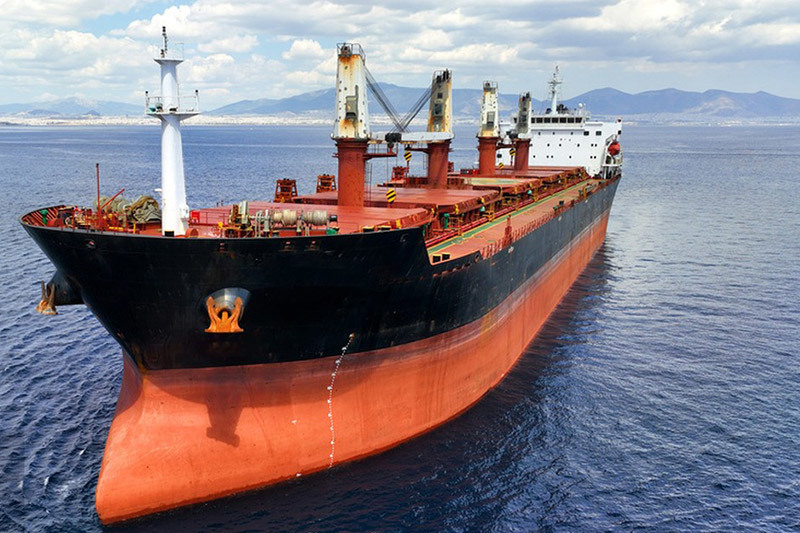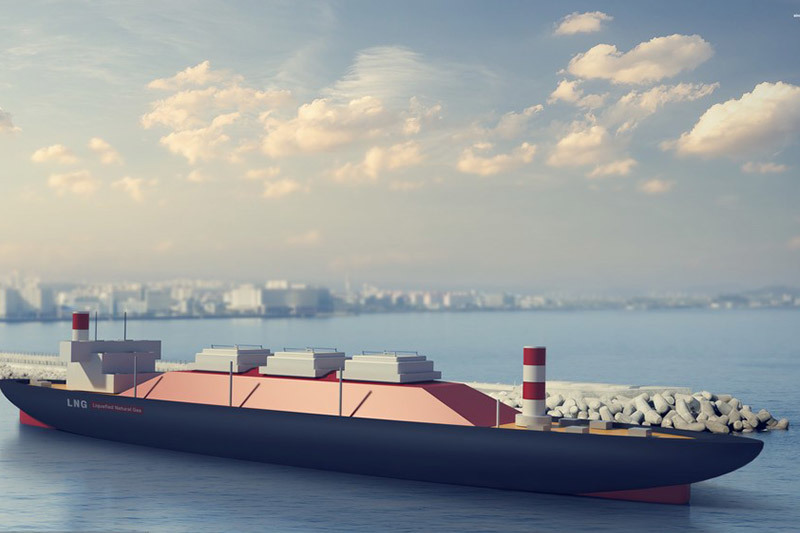news
Unlocking Efficiency: The Role of Floating Storage Offloading in Modern Shipping
Unlocking Efficiency: The Role of Floating Storage Offloading in Modern Shipping
Table of Contents
- 1. Introduction to Floating Storage Offloading
- 2. What is Floating Storage Offloading?
- 3. Benefits of Floating Storage Offloading in Shipping
- 4. Technological Advancements Driving FSO
- 5. Applications of Floating Storage Offloading in the Industry
- 6. Challenges Faced by Floating Storage Offloading
- 7. The Future of Floating Storage Offloading
- 8. FAQs about Floating Storage Offloading
- 9. Conclusion
1. Introduction to Floating Storage Offloading
In the ever-evolving landscape of maritime logistics, **Floating Storage Offloading (FSO)** systems play a pivotal role in enhancing operational efficiency. This innovative solution allows for the storage and processing of hydrocarbons directly offshore, thereby minimizing the need for extensive onshore facilities. As global demand for oil and gas rises, the logistics of transporting these resources become increasingly complex. This article delves into the intricacies of Floating Storage Offloading, highlighting its significance in modern shipping.
2. What is Floating Storage Offloading?
Floating Storage Offloading refers to a method where **tankers are converted into floating storage units**, facilitating the transfer of crude oil or liquefied natural gas directly from production platforms or subsea pipelines. These systems are equipped with various technologies that allow them to store large volumes of hydrocarbons temporarily, significantly reducing the need for shore-based infrastructure.
How FSO Works
FSOs are often anchored offshore, connected to subsea pipelines that transport hydrocarbons directly to the unit. The process generally involves the following steps:
1. **Production**: Oil and gas are extracted from subsea reservoirs.
2. **Transportation**: Hydrocarbons are transported through pipelines to the FSO.
3. **Storage**: The FSO stores the crude or LNG until it can be transported to refining facilities.
4. **Offloading**: Crude is offloaded onto shuttle tankers or directly sent to refineries via pipeline.
This streamlined process not only enhances efficiency but also reduces transportation costs and environmental impacts.
3. Benefits of Floating Storage Offloading in Shipping
The adoption of Floating Storage Offloading systems offers several advantages that contribute to the overall efficiency of maritime logistics:
Cost Efficiency
By facilitating the storage and transfer of oil and gas directly offshore, FSOs reduce the need for expensive onshore facilities. This results in lower capital expenditures and operational costs.
Environmental Benefits
FSOs significantly minimize the environmental impact associated with onshore storage facilities. This offshore model limits the risk of spills and leaks, protecting marine ecosystems.
Increased Flexibility
Floating Storage Offloading units provide greater flexibility in managing crude oil inventories. They can be easily relocated to respond to market demands or geopolitical events.
Enhanced Safety
Operating offshore reduces risks associated with onshore facilities, including potential accidents and regulatory compliance issues. FSOs are subject to stringent safety standards, ensuring a safer work environment.
4. Technological Advancements Driving FSO
The effectiveness of Floating Storage Offloading systems can be attributed to several technological advancements:
Advanced Monitoring Systems
Modern FSOs are equipped with sophisticated monitoring systems that provide real-time data on storage levels, temperature, and pressure. These systems enhance safety and operational efficiency.
Automated Offloading Technology
Automation in offloading operations minimizes human error and accelerates the transfer process, making it faster and safer.
Environmental Management Technologies
Innovative technologies designed to minimize environmental impacts are becoming standard in FSO operations, including systems for spill detection and containment.
5. Applications of Floating Storage Offloading in the Industry
Floating Storage Offloading systems find applications across various sectors of the shipping industry:
Offshore Oil Production
FSOs are primarily used in offshore oil production, where they serve as a temporary storage solution for crude oil extracted from seabed reservoirs.
LNG Storage and Transport
Floating Storage Offloading units are increasingly utilized for liquefied natural gas, allowing for efficient transport and storage of this resource.
Emergency Response
FSOs can also play a crucial role in emergency scenarios, providing immediate storage solutions in the event of natural disasters or geopolitical crises that disrupt onshore facilities.
6. Challenges Faced by Floating Storage Offloading
Despite their benefits, Floating Storage Offloading systems face several challenges that must be addressed for optimal operation:
Regulatory Compliance
Navigating the complex regulatory landscape associated with offshore operations can be challenging. Companies must ensure compliance with international and local regulations.
Operational Limitations
Environmental conditions, such as severe weather and ocean currents, can affect the stability and operational efficiency of FSOs.
Technological Barriers
While advancements in technology have significantly improved FSO operations, there remains a need for continuous innovation to address ongoing challenges related to safety and efficiency.
7. The Future of Floating Storage Offloading
The future of Floating Storage Offloading looks promising, driven by several trends:
Increased Investment
As the demand for oil and gas continues to grow, investment in FSO technology is expected to increase, leading to improvements in efficiency and safety.
Adoption of Renewable Energy Solutions
The shipping industry is gradually shifting towards sustainable practices. Future FSOs may incorporate renewable energy sources, such as wind and solar, to power their operations.
Integration with Smart Technologies
The integration of smart technologies, including IoT and AI, will enhance monitoring, data analysis, and decision-making processes in FSO operations.
8. FAQs about Floating Storage Offloading
What is the primary purpose of Floating Storage Offloading?
The primary purpose of Floating Storage Offloading is to store and transfer oil and gas directly offshore, minimizing the need for onshore facilities.
How does Floating Storage Offloading enhance efficiency?
FSO enhances efficiency by reducing transportation costs, environmental impacts, and capital expenditures associated with onshore storage.
What are the safety measures in place for FSOs?
FSOs are equipped with advanced monitoring systems, automated offloading technology, and environmental management systems to ensure safety.
What industries utilize Floating Storage Offloading systems?
FSOs are primarily used in offshore oil production, LNG storage and transport, and emergency response scenarios.
What are the future trends in Floating Storage Offloading?
Future trends include increased investment, the adoption of renewable energy solutions, and the integration of smart technologies.
9. Conclusion
Floating Storage Offloading represents a crucial advancement in maritime logistics, unlocking new levels of efficiency and operational flexibility within the shipping industry. By minimizing the reliance on onshore facilities, FSOs not only reduce costs but also mitigate environmental impacts and enhance safety. As technology continues to advance, the role of Floating Storage Offloading will likely become even more integral to the ongoing evolution of modern shipping practices. Understanding this shift is essential for stakeholders in the maritime sector looking to stay competitive in a rapidly changing landscape.
Other news
The Future of Maritime Transportation: Self Unloading Bulk Carriers Explained
The Future of Maritime Transportation: Self Unloading Bulk Carriers Explained Table of Contents 1. Introduction to Maritime Transportation 2. What Are Self Unloading Bulk Carriers? 3. Historical Evolution of Bulk Carriers 4. Mechanisms of Self Unloading Technology 5. Benefits of Self Unloading Bulk Carriers 6. Environmental Impact of Self Unloading Bulk Carriers 7. Fut
Understanding the 5000 DWT Bulk Carrier: Key Features and Operational Insights
The 5000 DWT (Deadweight Tonnage) bulk carrier is designed to efficiently transport a wide range of bulk cargoes, including grains, coal, minerals, and other solid commodities. Such vessels play a pivotal role in global trade, as they are capable of navigating both coastal and deep-water routes with ease. Their moderate size allows for flexibility in port access and reduced operational costs, maki
Evaluating the Best Practices for Using a Ship Trading Platform
Evaluating the Best Practices for Using a Ship Trading Platform Table of Contents 1. Introduction to Ship Trading Platforms 2. Understanding Ship Trading and Its Importance 3. Key Features of Effective Ship Trading Platforms 4. Best Practices for Successful Ship Trading 4.1 Conducting Thorough Market Research 4.2 Leveraging Data Analytics
Privacy
The Software respects and protects the personal privacy of all users of the Services. In order to provide you with a more accurate and personalized service, the Software will use and disclose your personal information in accordance with this Privacy Policy. However, the Software will treat such information with a high degree of diligence and duty of care. Except as otherwise provided in this Privacy Policy, the Software will not disclose or provide this information to third parties without your prior permission. The Software may update this Privacy Policy from time to time. You will be deemed to have agreed to this Privacy Policy in its entirety when you agree to the Software Service Use Agreement. This Privacy Policy is an integral part of this Software Service Use Agreement. 1. Scope of ApplicationIn your use of the Software's network services, the Software automatically receives and records information on your cell phone, including, but not limited to, your health data, the language used, the date and time of access, information on hardware and software characteristics, and data on webpage records of your needs; 2. Use of InformationAfter obtaining your data, the Software uploads it to the server to generate your leaderboard data so that you can better use the Services. The Software will upload your data to the server to generate your ranking data so that you can use the service in a better way. 3. Information Disclosure 3.1 The Software will not disclose your information to untrusted third parties. 3.2 In accordance with the relevant provisions of the law, or the requirements of administrative or judicial bodies, disclosure to third parties or administrative or judicial bodies; 3.3 If you appear to violate the relevant Chinese laws, regulations or relevant rules, it is necessary to disclose it to a third party; 4. Information Storage and Exchange The information and materials collected by the Software about you will be stored on the servers of the Software and/or its affiliates. The information and data may be transferred to and accessed, stored and displayed outside of your country or region or the country in which the Software collects the information and data. 5. Information Security When using the Software's network services to conduct online transactions, you will inevitably disclose your personal information, such as contact information or postal address, to the counterparty or potential counterparty. Please protect your personal information and provide it to others only when necessary. If you find that your personal information has been compromised, please contact the software's customer service immediately so that the software can take appropriate measures.














